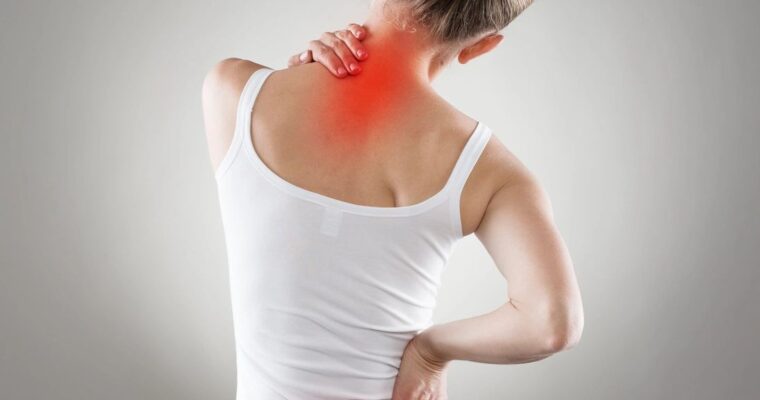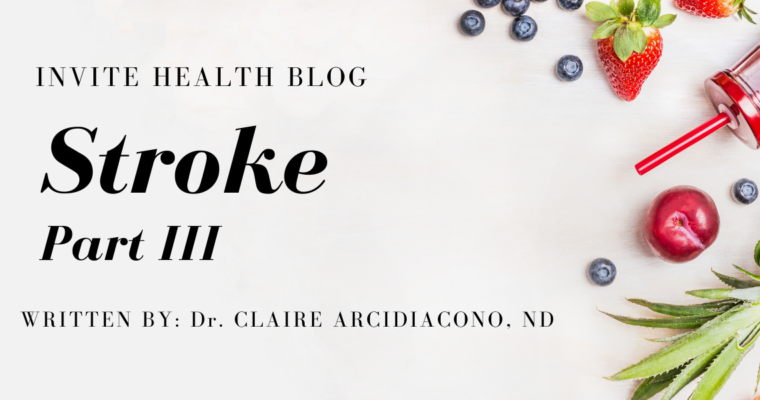Subscribe Today!
Please see below for a complete transcript of this episode.
MAGNESIUM IS THE IGNORED MINERAL FOR BONE STRENGTH, INVITEⓇ HEALTH PODCAST, EPISODE 639
Hosted by Jerry Hickey, Ph.

*Intro Music*
InViteⓇ Health Podcast Intro: [00:00:04] Welcome to the InViteⓇ Health Podcast, where our degreed health care professionals are excited to offer you the most important health and wellness information you need to make informed choices about your health. You can learn more about the products discussed in each of these episodes and all that Invite Health has to offer at invitehealth.com/podcast. First time customers can use promo code podcast at checkout for an additional 15% off your first purchase. Let’s get started.† [00:00:34]
*Intro Music*
Jerry Hickey, Ph: [00:00:41] Magnesium is an incredibly important mineral. Yet most Americans, most of us, do not consume enough magnesium on a daily basis. This has a profound effect on our health, everything from sleep awareness, energy, heart health, magnesium. And everybody starts their magnesium discussion like this, but it’s so important to point this out. Magnesium is involved in over 300 biological reactions. So, it’s literally involved with everything in the body. For instance, when you make energy out of food, when you make energy out of sugars and the Krebs citric acid cycle, that energy is in the form of a molecule called ATP and ATP releases a phosphorus, am I getting boring here? I’ll try not to. This has to be stabilized by the mineral, magnesium or all your energy will just go off in a flash. So, magnesium is like key to everything, your energy, your mental health, your blood pressure, your heart rate, and all your other muscle functions, the rate of all the muscles firing. So, I would say, you know, we could talk about magnesium forever, I’ll just say, and so on and so forth, etc., etc., etc.. However, what is frequently neglected is that magnesium is a major player in bone health, and that’s what we’re going to discuss today. We’re going to go over some studies, we’re going to go over some doses and by the way magnesium in food, it’s in green leafy vegetables like spinach and broccoli and lettuce. It’s in nut, it’s in grains, but it’s not the easiest thing to derive from food, so you’re probably better off getting some level of supplementation, doesn’t have to be a high amount. And there is a sweet spot, it seems, for magnesium supplementation or the amount of magnesium we should consume every day. So, at any event, my name’s Jerry Hickey. I’m a pharmacist, a licensed pharmacist, I’m also the senior scientific officer over here at Invite Health. And I’ve really focused on nutrition throughout my career, ever since the 1970s. Taken many courses, you can find all of our podcasts for free wherever you listen to podcast or just go to invitehealth.com/podcast. You can also find us on Facebook, Twitter and Instagram at Invite Health. And all of the information on today’s episode is listed in the episode description. So, let’s go over a simple study from Virginia Commonwealth University, that’s in Richmond, Virginia, Sabi University School of Medicine, which is in the Caribbean, the University of Massachusetts in Boston, and Lake Erie College of Osteopathic Medicine. And they said with age there’s an imbalance of bone resorption and bone formation, I’ll explain what that is in a minute, and this leads to brittle bones. Calcium and vitamin D are particularly of importance for bone health, but magnesium is also a major player. It plays a number of important roles in building bone health. This is very important with the passage of time as you age. So, there’s all kinds of hormones and vitamins and minerals and factors involved with building bone, bone is living tissue. Bone does a lot of things, it creates a lot of your cells, it creates your red blood cells and your immune cells, you know, your white blood cell and your platelets. And bone sort of converses with each other, for instance, if the bones in your arm, see that your arms are doing more work, the bones in your arms will favor themselves and thicken. Whereas if you’re doing a lot more work with your knees, the bones in your thighs might get thicker. Very interesting. But the bone seems to have a language and it’s also a storehouse for things. So, our bone is built with osteoblasts, and it’s removed by osteoclasts. And every ten years you replace your entire skeleton, which typically is about 10lbs. So every year you’re replacing 10% of your skeleton, that’s a lot. So, these osteoblasts have to take all of the different things, collagen and calcium and phosphorus and magnesium all work together and build bone. There’s a lot of things involved with building bone and there’s a balance. The osteoclasts remove the old bone, otherwise the bone gets brittle anyway. But what happens with age? The osteoblasts fizzle out, they’re the ones that build bone and the osteoclasts go on working and you get an imbalance and you start to get brittle bones. I mean, this is very common in older people. More common than you think. It’s dangerous. † [00:05:30]
[00:05:32] Hip fractures are, could be potentially deadly. So, there are different things that support the osteoblasts. I’ve gone into this a number of times, minerals like strontium, etc. You get strontium in a lot of healthy foods like asparagus and broccoli and spinach a little bit and garlic and onion. So, let’s go on with magnesium, we’re really focusing on magnesium here. The IRSCCS Foundation is a major research foundation among, Italy. I’ve over a number of their studies previously, and they worked with the University of Pavia in Italy. They published their findings in August 2021. Looking at magnesium and bone health, and what they did was an update. They reviewed current research. This, by the way, there’s thousands of studies looking at magnesium and bone health. So, I just you know, I just picked out some, probably not even the best because who has like a month just look at magnesium studies. That’s where AI comes in, by the way. So, this is an update to look at magnesium and bone health. They chose 28 studies, now, nine of the studies looked at what happens if you have low magnesium in the blood, looking at magnesium in the blood is better than asking people what they ate and trying to figure out how much magnesium was in the food,that has a lot of risks to it. That’s kind of like not the best way to get your data. So, they looked at magnesium in the blood, this way, there’s no fooling the researchers. And they found that if the blood level, if the serum level of magnesium is low, it’s strongly related to osteoporosis, up to 40% of the test subjects in their study, especially menopausal women, were very low in magnesium, and low magnesium was also linked with an increased risk of fracture, what you would think it would. Now, they looked at seven other studies that they included in their research, and they found that magnesium as a supplement, consistently connected with better bone health, consistently connected with thicker bone, mineral density, stronger bones, thicker bones, consistently connected with a lower incidence of fractures, a lower risk of fractures. There really is data on magnesium and bone health. You really need to include magnesium as part of your supplementation. I’ve told people this for years. Tufts University, Center for Aging in Boston. Two thirds of your magnesium belong. in your bones. Okay. Well, that’s you know, we know that. But it’s important to note that most of the magnesium in your body is not in your muscles or in your brain or in your heart. It’s in your bones showing how important it is to pull, not at there’s so much in the bone. It’s one, as far as minerals go, it’s one of the lower concentrations. That doesn’t mean it’s not important. It’s extremely important because one of the things it does, it anchors calcium into the bone. Calcium hooks up to something called the bone mineral matrix, organic bone mineral matrix. And it’s the magnesium that kind of makes the connection. † [00:09:00]
FROM BONES TO OSTEOPENIA: THE BENEFITS OF CALCIUM- INVITE HEALTH PODCAST, EPISODE 584>>LISTEN NOW!
[00:09:02] So here’s Takahashi Dental School, Dental Clinic in Japan and dental school in Japan. And they say that there is a connection between jawbone related bone loss and general loss of bone throughout your body. So as the body goes with bone loss, so does the jaw. They go on to say magnesium is strongly related. Not only does it help build bone throughout your body, but it also builds strong bone in your jaw, and it builds strong teeth. And they said this is really important because you need magnesium supplementation after a dental implanting procedure to prevent the loss of a tooth. Well, that, it’s anchoring the teeth. So, here’s the journal Nutrients, that’s one of my go to journals. March 7th, 2023, at the University of Palermo. Palermo does a lot of research on bone health by the way. Magnesium is a major component of bone; they did a systematic review and meta-analysis looking at blood levels of magnesium and fracture risk and fracture incidence. So, they wanted to not ask people, what did you eat for breakfast for the past ten years to try and figure out how much magnesium they were getting. You know what I mean? Not questioning them about the food state for breakfast, lunch and dinner and snack. They went right into the blood, that’s more foolproof. And this is thousands of people, it’s 120,000 participants or just shy of 120,000 participants. So, a systematic review means they collated all the worthwhile studies that are lacking bias, etc., and that are well reported and well-designed and well-constructed. So, they got good studies looking at magnesium in the blood, that included almost 120,000 participants. Lower blood levels of magnesium really connected with an increased risk of fracture, a 58% relative risk increase, a 58% increased your relative risk of developing a fracture, it’s a strong association. That’s a strong association. It’s a strong association. They said it’s a strong association. So, magnesium, from what I’ve read, is about 1% of bone, now, that could be off. You know, sometimes the studies are not 1,000,000% accurate, but it’s about 1% of bone. But it’s really important because it hooks calcium into the bone. The calcium can’t escape if you have enough magnesium. If you lack magnesium, the bone crystals of calcium expand, and the bone becomes really easy to break. It becomes very frail, but magnesium does more than hooking calcium into your bone. It also is involved with other nutrients, the activation of other nutrients. For instance, you need magnesium to activate melatonin, melatonin is a nighttime hormone. Now, melatonin is released by immune cells, it’s important for the immune system to kill cancer cells, to kill viruses, you know, like the flu. And melatonin is also important for healthy digestion. And of course, melatonin has something to do with our circadian rhythm, night versus day. And that’s important because at night you cleanse your brain, you detoxify your brain. At night, you rebuild your brain and your memory components of the brain. But at night you also build bone, and there’s a strong tie in between melatonin and bone manufacture. You do your bone building at night when you’re sleeping. So if you lack magnesium, your melatonin is much less effective and there’s less melatonin. So one thing magnesium does besides hooking calcium into the organic matrix of the bone, it’s involved with melatonin function, and melatonin is involved with building bone. † [00:13:04]
[00:13:06] The other thing, magnesium is involved with activating vitamin D. Now, typically in the old days, there was an interaction between the sun on your skin and you made a precursor to vitamin D that was stored in your liver and that was slowly released on went to the kidneys and it was activated by hormones. You need magnesium to activate the vitamin D, if you’re lacking magnesium, Vitamin D is less effective. And we know vitamin D is involved with brain health. We know vitamin D to a degree is involved with heart health. It’s definitely involved with all your other muscles, it’s involved with your eye balls, I mean, it’s involved with just about everything. Strong teeth, strong muscle, but it’s also involved with the immune system. Of course, Vitamin D is involved with building bone, and how is vitamin D involved with building bone? Well, vitamin D controls the absorption of calcium and phosphorus from both food and supplements. Calcium and phosphorus are both major components in your bone. So, without vitamin D, you’re not absorbing calcium and phosphorus, nor do you retain the Calcium & phosphorus that’s in the bloodstream, you’ll lose them in your urine. So, you need vitamin D activity to absorb both calcium and phosphorus and to maintain blood levels of calcium and phosphorus. Now, it’s important to mention this at this point, vitamin D is not what chaperons calcium. It’s not what pushes calcium into the bone, it just makes it available. It’s truly vitamin K that chaperons calcium and pushes it into the bone. So, if you’re doing a lot of vitamin D, you really should be in a lot of Vitamin K unless there’s an issue. So, discuss that with your doctor. Now, one of the reasons why vitamin D is less effective when you, when you lack magnesium is because your parathyroid hormone is not functioning well. So, it’s hard to work with these minerals. So, how much magnesium do you need? Well, some studies show that consuming above 350 milligrams of magnesium daily reduces the incidence of dying from heart disease and heart attacks and strokes from bone fractures, from diabetes and even from cancer. So, here’s some bone related studies indicating the dosage of magnesium that you basically would need on a daily basis. This is the Neuroscience Institute, the aging branch in Padova, Italy, and the physiotherapy division of the National Health Service in London. So, it’s in the British Journal of Nutrition, January 2017. It’s a large eight yearlong study looking at magnesium as a supplement and magnesium from foods, they’re looking at magnesium from all sources, it’s just shy of 4000 participants. So that’s a well powered study, almost 4000 participants over eight years. Higher incidence of magnesium really reduced fracture risk, it reduced fracture risk in men by 53% and women magnesium reduced fracture risk by 62%. Now, the normal recommended amount, reduced fracture risk in women by 27%. So, a higher dosage than what’s recommended reduced fracture risk in women by 62%, this was a strong protective effect. And the best dosage for women, the best amount per day was 400 milligrams a day for women. Here’s the problem, less than 30% of the people in the study consumed the RDA of magnesium, never mind the higher dosage of magnesium. So, it really is an issue, it really is an issue. † [00:16:44]
ICYMI:HOW TO STOP MUSCLE MASS LOSS AS YOU AGE, INVITE HEALTH PODCAST, EPISODE 629>>LISTEN NOW!
[00:16:44] And here’s one last study as the European Journal of Epidemiology, It’s the University of Bristol in England, they led the study, the University of Eastern Finland and the internal medicine department, Central Finland Hospital. So, it’s an English Finnish study. It’s 2245 men between the age of 42 to 61, when they entered the study. So, almost 2300 men entered the study between the age of 42 to 61. They were followed for up to 26 years, and they were looking at the blood level of magnesium, the serum blood level of magnesium, which again, is more bulletproof than asking people what they ate, it’s more dependable. Those with the lowest magnesium intake had a 210% increased risk of any fracture. A 210% increased risk of any fracture. People with the lowest intake of magnesium, men with the lowest intake of magnesium over a 26 year period, including fractures of the ankle, the wrist, the spine, the hip. None of the men with a higher intake of magnesium had a fracture over the 26 years, over the 26-year time period, none of the men, none, zero, 0% of the men with higher magnesium intake had a fracture, and that’s saying a lot. Low magnesium led to fractures, really increased the risk of fractures. Don’t forget, men release testosterone, and testosterone itself helps build thick bones. So, they found that men with low magnesium, listen to this, not only did they have a 210% increased risk of any fracture, they had up to a 256% increased risk of a hip fracture. A 256% increased risk of a hip fracture. Hip fractures are particularly deadly in men. Now, here’s the interesting thing, supplements seem to be more dependable, more effective in reducing fracture risk. Well, yeah, that would be true because, you know, you’re getting it if you take a supplement. Magnesium is one of those supplements I really want people to take. Every evening with my dinner, I take a calcium- magnesium tablet. Now I’m getting the other bone building nutrients throughout the day. I get a lot of vitamin D with my breakfast because I’m taking supplements of vitamin D, I take vitamin D3, which is the most active form. I’m getting 3000 units every morning with my breakfast. And I can take it in the morning because vitamin D is stored, so it lasts all day, lasts for days. I’m getting silica in my vegetables. Silica is important for mineral, for building bone. I get collagen as a supplement after I exercise. It’s one of the things I take after exercise. And at night with my dinner, I’m getting calcium and magnesium. I depend on my food for phosphorus, it’s easy to get phosphorus from food. I don’t worry about phosphorus. And I depend on my vegetables for strontium because you don’t need a lot of strontium to build bone. So, in the morning I’m getting my vitamin D, I get a lot of green leafy vegetables every day, that takes care of my vitamin K, that takes care of my silica, that takes care of my strontium. I get plenty of phosphorus in things like lettuce and, you know, fish and beans and things, so I’m not worried about that. And then with dinner I get my calcium-magnesium, so I hope that’s clear. But magnesium, my recommendation, get some magnesium into your life as a supplement, doesn’t have to be a huge amount. Could be 100 milligrams. I’m getting in supplementation daily, 150 milligrams, so I probably get about 400 milligrams a day. You know, it’s going to vary from day to day depending on the source of the food. So, I want to thank you for listening to today’s episode. You can find all of our episodes for free wherever you listen to a podcast or just go to invitehealth.com/podcast. You can also find Invite on Facebook, Twitter and Instagram at Invite Health. Oh, and by the way, they ask if I could say, please subscribe and please leave a review, that’s helpful. I want to thank you for listening. And this is Jerry Hickey signing off, and I hope to see you next time on another episode of the InViteⓇ Health Podcast. † [00:16:44]
*Exit Music*











